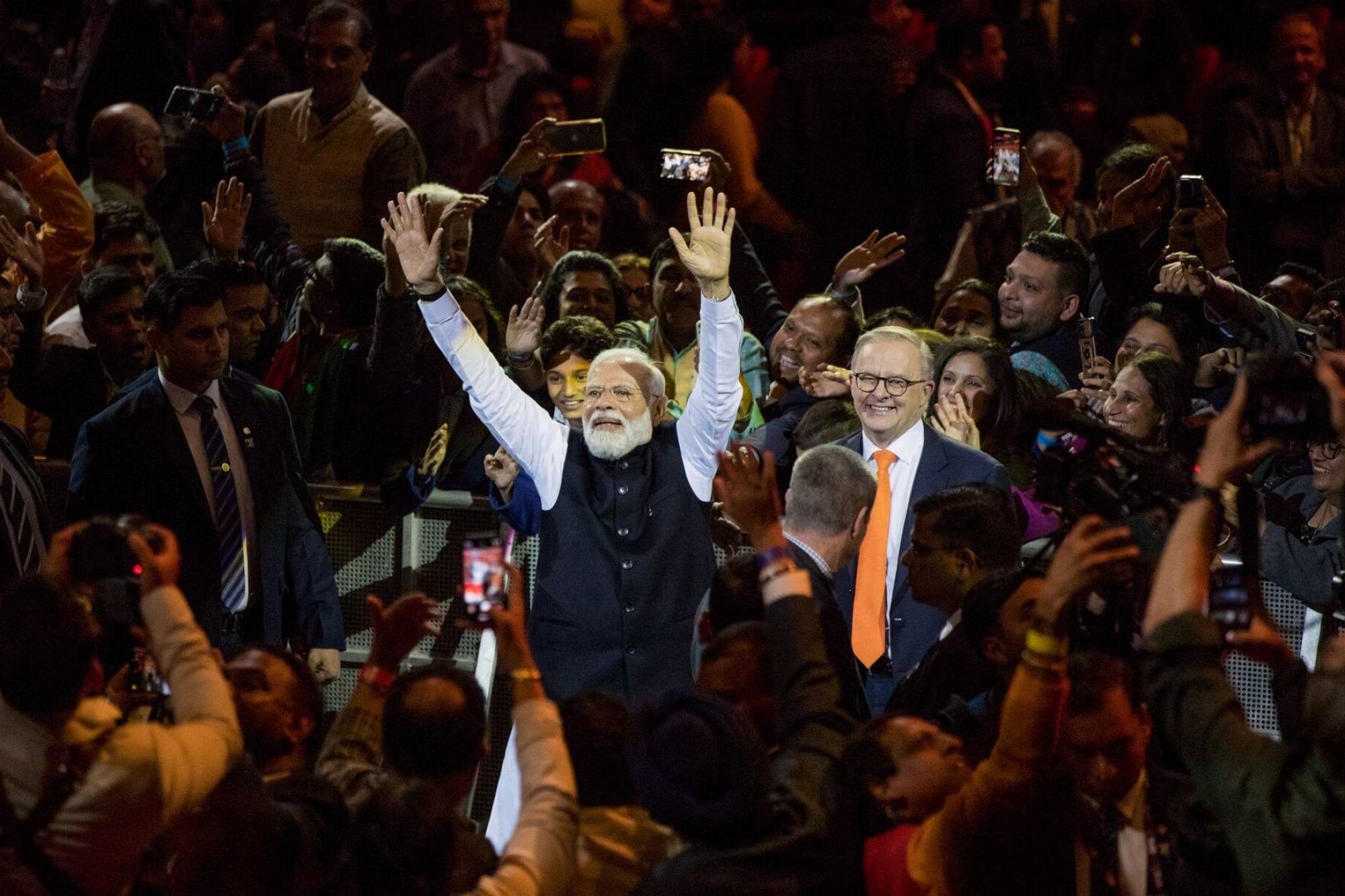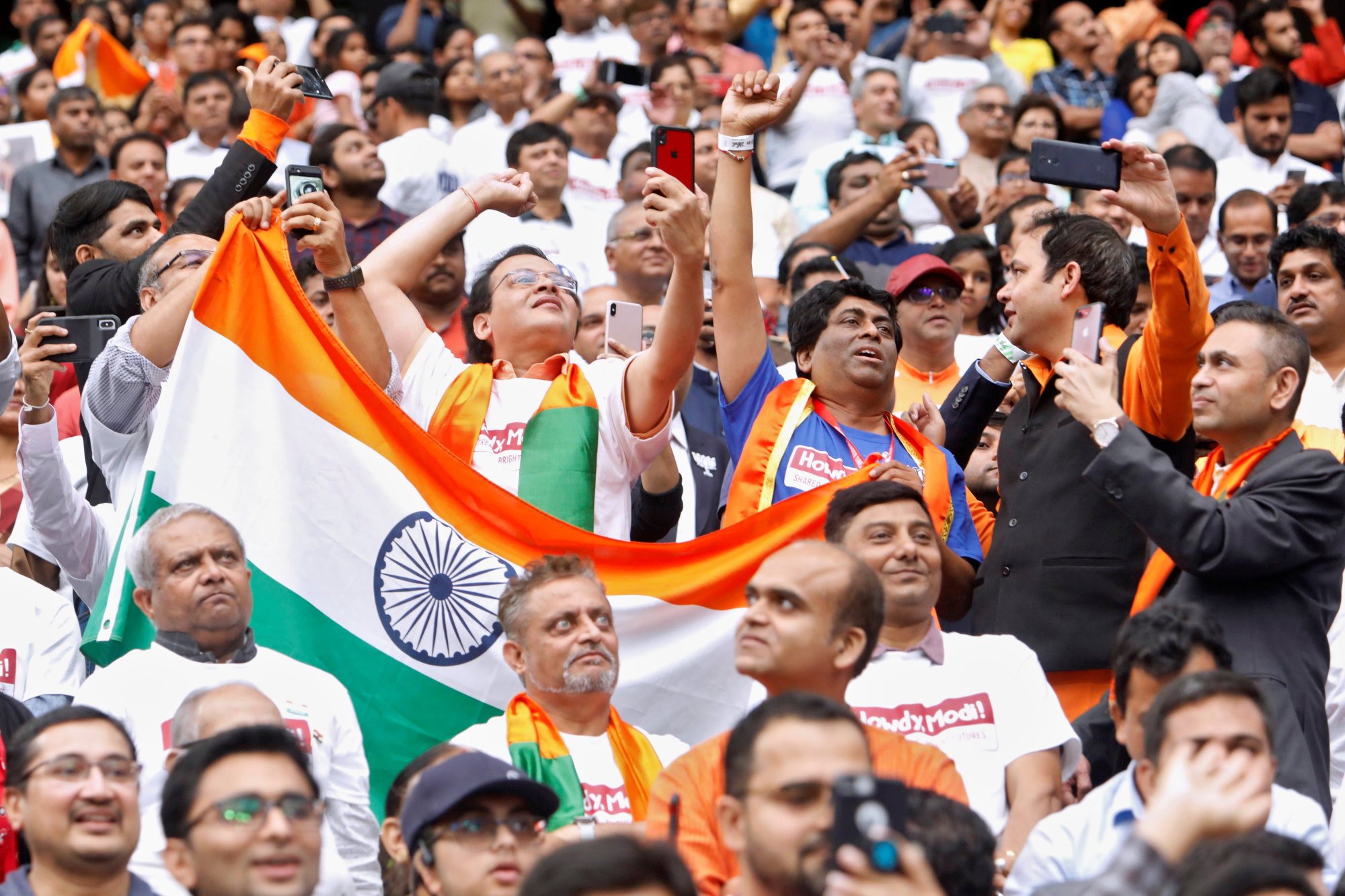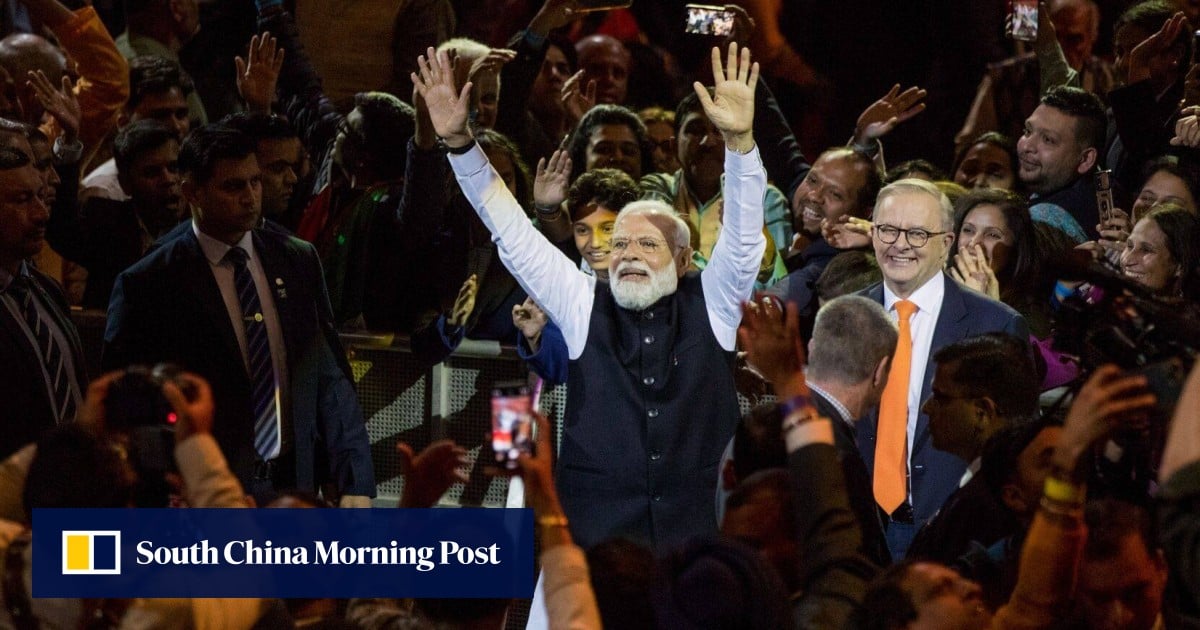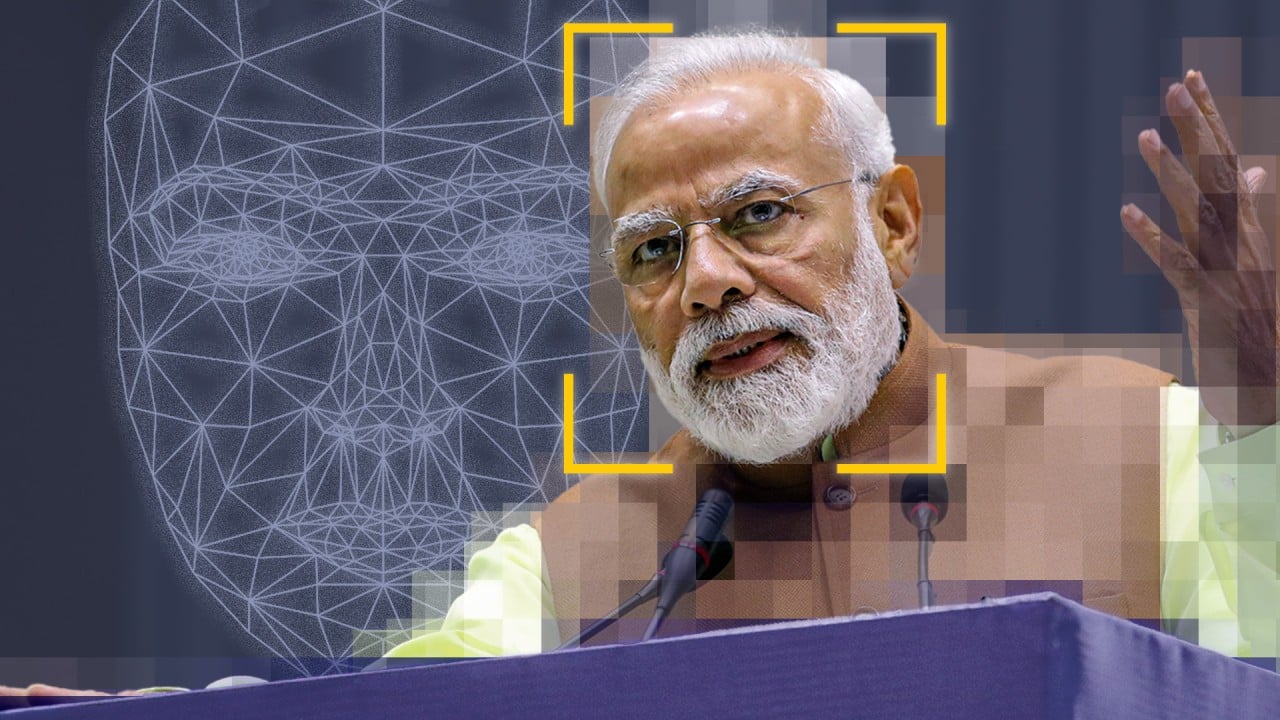The Indian diaspora’s strong endorsement of Modi and his government can be clearly seen in the opinion polls.
Support among overseas Indians – foreigners of Indian origin and Indian nationals living abroad – has been consistently 15 to 20 per cent higher than those living in India, according to Yashwant Desmukh, founder of Indian pollster C-Voter.
“Modi has consistently been a darling of non-resident Indians [NRIs]. I guess the biggest contribution of NRIs is building on the narrative [of the rise of India]. They have tried to convince family members back home on how to vote,” Desmukh said, adding that Modi’s “aggressive” style of leadership and confidence in conducting himself among world leaders have been welcomed by the Indian diaspora.

Nearly 970 million people are eligible to vote in India’s 18th general election, which began on Friday and runs to June 1. The results are expected by June 4.
The BJP won 303 out of 543 seats in the Lok Sabha, India’s lower house of parliament, in the 2019 general election. This year, it aims to win 370 seats on its own and 400 together with allies under the National Democratic Alliance.
Praising Modi and the BJP, Kapoor said: “Very few people have the ability to take the bull by horns like that.”
The one thing that comes across through opinion polls among Indians is that they say he has put India on the map like no other prime minister has done
A key factor behind the higher visibility of India’s successes is Modi’s commitment to regular overseas travel and connecting with the Indian diaspora. Since becoming prime minister in 2014, Modi has made 71 foreign trips, according to media reports.
Analysts say the BJP has assiduously wooed overseas Indians, who have flocked to Modi’s events during his trips.
“In so far as the impact of Modi’s travels, it is hard to deny that there is a real, tangible impact. The one thing that comes across through opinion polls among Indians is that they say he has put India on the map like no other prime minister has done,” said Shubhankar Dam, chair professor of public law and governance at the University of Portsmouth’s school of law.

India’s economic ascendancy, in particular, has resonated with the Indian diaspora, many of whom hold white-collar jobs. In its election manifesto, released this week, the BJP outlined a road map to transform India into a developed country by 2047.
While analysts and overseas Indians say India still has some way to go to achieve developed economy status, they agree that the government’s efforts to revamp infrastructure, cut red tape and implement nationwide digitalisation are a step in the right direction.
Kapoor said he was impressed with India’s efforts to stamp out corruption, a perennial scourge affecting India’s global economic standing.
“This government is very intolerant of corruption,” Kapoor said, citing Delhi’s efforts to curb illegal fund transfers. “We can see at least the intent was there to reduce corruption.”
Why do India’s general elections take so long to complete?
Why do India’s general elections take so long to complete?
Rami Ranger, who used to live in India’s Punjab region before moving to the UK – and being raised to the British peerage in 2019 – has witnessed his homeland’s meteoric rise to economic powerhouse over the decades.
“I have been here in this country [the UK] for 50 years and [as a member of the Indian diaspora] I have never felt so proud as today,” he added.
Ethnic Indians living abroad cannot vote in India’s elections unless they are citizens, but their influence cannot be underestimated, said Sreeradha Dutta, a professor of international affairs at Jindal Global University.
“A substantial number of the Indian diaspora views the present Indian government very favourably. While they may not be in a position to vote, the diaspora has been very forthcoming with their funding and support. The BJP also holds an appeal for the Indian Hindu diaspora along with the sense of pride in being an Indian,” Dutta said.
According to Priyajit Debsarkar, a London-based British-Indian author, overseas Indians’ pride in “the motherland” is palpable, despite the fact that many often hail from a diverse range of backgrounds.
“Unity in diversity is the greatest asset and strength of the country,” said Debsarkar, who is also a geopolitical analyst.


